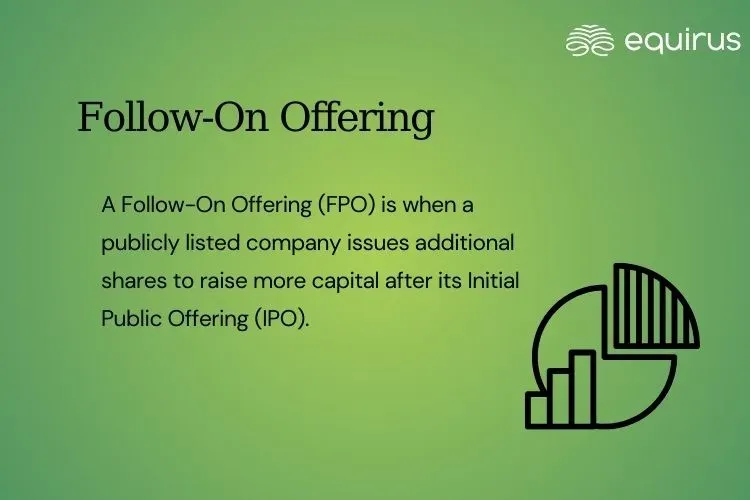Follow-On Offering

Key Highlights
-
A Follow-On Offering (FPO) is when a publicly listed company issues additional shares to raise more capital after its Initial Public Offering (IPO).
-
Types of follow-on offerings includes dilutive and non-dilutive FPO.
What is Follow-On Offering?
A Follow-On Offering (FPO), also known as a Follow-On Public Offer, is when a publicly listed company issues additional shares to raise more capital after its Initial Public Offering (IPO).
This means the company is already listed on a stock exchange and is now offering more shares to investors.
Why Do Companies Go for FPOs?
Companies may launch an FPO for several reasons:
- To raise additional funds for expansion, debt repayment, or working capital.
- To improve liquidity in the stock market.
- To allow existing shareholders (like promoters or private equity firms) to sell part of their stake.
Types of Follow-On Offerings
1. Dilutive FPO
- New shares are issued by the company.
- Increases the total number of outstanding shares.
- May reduce earnings per share (EPS) because profits are now divided among more shares.
2. Non-Dilutive FPO
- Existing shareholders (like promoters or early investors) sell their shares.
- The company does not receive any funds from the sale.
- No change in the number of total shares outstanding.
How FPOs Affect Investors?
-
For New Investors: FPOs are a chance to buy into a listed company at a possibly discounted price.
-
For Existing Shareholders: A dilutive FPO may reduce their ownership percentage, but the capital raised may benefit the company in the long run.
-
Stock Price Impact: Prices may fall temporarily due to increased supply or if the market perceives the FPO negatively.
Example (India)
Let’s say Company ABC was listed through an IPO in 2020. In 2025, it launches an FPO to raise ₹2,000 crore to build new manufacturing plants. It issues new shares at ₹300 per share while its current market price is ₹320.
